All farmers who receive Basic Payment Scheme (BPS) money are subject to cross-compliance rules.
They include 13 Statutory Management Requirements (SMRs) and seven Good Agricultural and Environmental Condition (GAEC) measures.
Speaking in Kilkenny last week, the Department of Agriculture’s regional inspector Mairead Fanning outlined the SMRs that cause most problems for farmers.
They include:
Nitrates
In this section, inadequate collection of livestock manures accounted for 33% of penalties issued to farmers. The failure to minimise soiled water accounted for another 19% of penalties.
GAEC
Issues such as poaching of land, uncontrolled noxious weeds, encroachment of hedges into fields, and the removal of landscape features were areas that resulted in farmers being penalised.
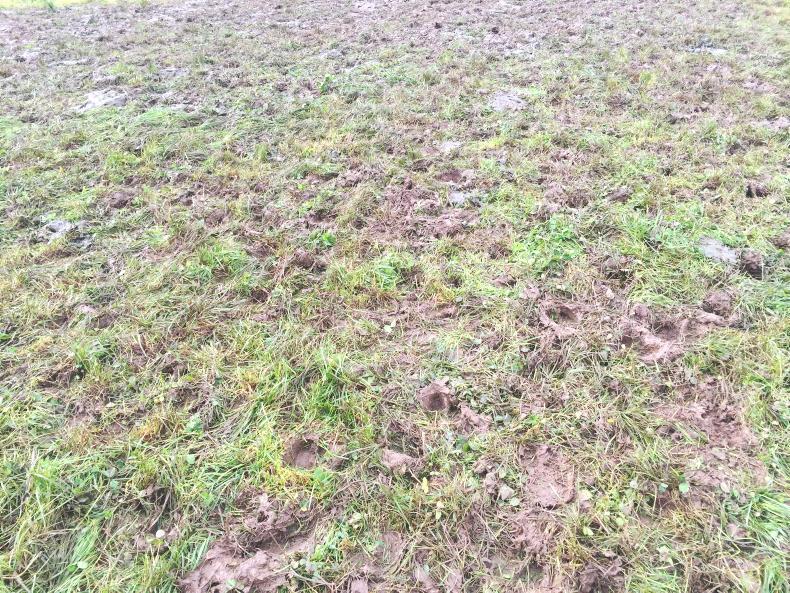
A heavily poached field
Bovine identification and registration
Under this heading, the most common problems found by inspectors were missing cattle tags, registration and notification issues.
Tagging accounted for 62% of breaches under this category. Issues with the AIMS database accounted 18% of penalties in this section also.
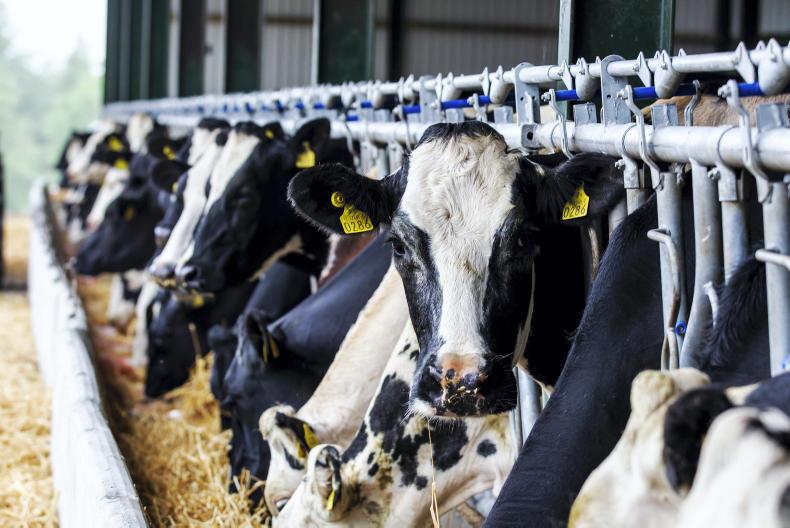
Missing cattle tags are a common problem. \ Philip Doyle
Ovine identification and registration
Sheep farmers too were penalised for their sheep missing tags, as well as flock register and dispatch dockets issues and census errors.
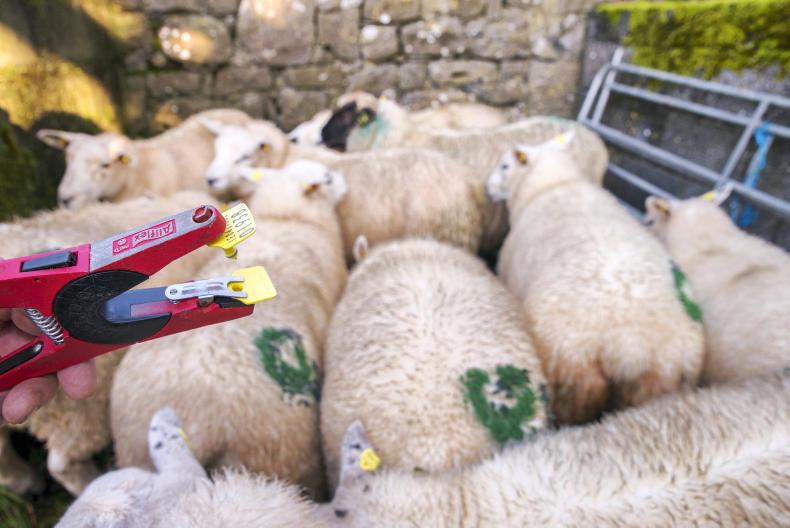
Missing tags were an issue for sheep farmers too. \ David Ruffles
Fanning reminded farmers that records are required for a number of SMRs including: animal remedies, pesticide application records, flock/herd registers, fertiliser and feed receipts and it’s important that these records are kept safe on farm for inspection.
GAEC issues
Removing landscape features was the biggest area of non-compliance under this measure, accounting for 27% of penalties. These were hedges, trees in line, habitats or archaeological features.
Failure to prevent encroachment accounted for 24% of penalties.
Severe poaching accounted for 22% of penalties, while evidence of poaching/rutting accounted for 21% of penalties.
Cutting hedges during the nesting season accounted for 2% of penalties in 2017.

Removing hedges, trees and habitats was a problem for some farmers under cross-compliance. \ Philip Doyle
Land eligibility
Eligible land is the primary requirement for many EU payment schemes.
It’s important to declare all of the land you farm. Under-declaration can result in a penalty. Land must be agricultural land and maintained in a state suitable for grazing or cultivation.
This can be done by:
1. Producing, rearing or growing agricultural products, including harvesting, milking, breeding animals, and keeping animals for farming purposes, or
2. Using other means to maintain an agricultural area in a state which makes it suitable for grazing or cultivation eg topping
During a land-eligibility inspection, the inspector will walk all parcels and:
Check parcel boundaries are correct.Check ineligible features are deducted.Carry out checks for farming activity and abandonment.Land eligibility issues
Some of the main issues found issues found by Department officials on inspection include:
No deductions made for ineligible features, particularly on marginal-type land.Insufficient deductions made for ineligible features, for example rivers, farmyards, roadways, scrub, rocky outcrops.Incorrect parcel boundaries. Read more
3,600 cattle identification and registration inspections to take place in 2020
Protected urea: know what you are buying
Local water quality meetings start this week
All farmers who receive Basic Payment Scheme (BPS) money are subject to cross-compliance rules.
They include 13 Statutory Management Requirements (SMRs) and seven Good Agricultural and Environmental Condition (GAEC) measures.
Speaking in Kilkenny last week, the Department of Agriculture’s regional inspector Mairead Fanning outlined the SMRs that cause most problems for farmers.
They include:
Nitrates
In this section, inadequate collection of livestock manures accounted for 33% of penalties issued to farmers. The failure to minimise soiled water accounted for another 19% of penalties.
GAEC
Issues such as poaching of land, uncontrolled noxious weeds, encroachment of hedges into fields, and the removal of landscape features were areas that resulted in farmers being penalised.

A heavily poached field
Bovine identification and registration
Under this heading, the most common problems found by inspectors were missing cattle tags, registration and notification issues.
Tagging accounted for 62% of breaches under this category. Issues with the AIMS database accounted 18% of penalties in this section also.

Missing cattle tags are a common problem. \ Philip Doyle
Ovine identification and registration
Sheep farmers too were penalised for their sheep missing tags, as well as flock register and dispatch dockets issues and census errors.

Missing tags were an issue for sheep farmers too. \ David Ruffles
Fanning reminded farmers that records are required for a number of SMRs including: animal remedies, pesticide application records, flock/herd registers, fertiliser and feed receipts and it’s important that these records are kept safe on farm for inspection.
GAEC issues
Removing landscape features was the biggest area of non-compliance under this measure, accounting for 27% of penalties. These were hedges, trees in line, habitats or archaeological features.
Failure to prevent encroachment accounted for 24% of penalties.
Severe poaching accounted for 22% of penalties, while evidence of poaching/rutting accounted for 21% of penalties.
Cutting hedges during the nesting season accounted for 2% of penalties in 2017.

Removing hedges, trees and habitats was a problem for some farmers under cross-compliance. \ Philip Doyle
Land eligibility
Eligible land is the primary requirement for many EU payment schemes.
It’s important to declare all of the land you farm. Under-declaration can result in a penalty. Land must be agricultural land and maintained in a state suitable for grazing or cultivation.
This can be done by:
1. Producing, rearing or growing agricultural products, including harvesting, milking, breeding animals, and keeping animals for farming purposes, or
2. Using other means to maintain an agricultural area in a state which makes it suitable for grazing or cultivation eg topping
During a land-eligibility inspection, the inspector will walk all parcels and:
Check parcel boundaries are correct.Check ineligible features are deducted.Carry out checks for farming activity and abandonment.Land eligibility issues
Some of the main issues found issues found by Department officials on inspection include:
No deductions made for ineligible features, particularly on marginal-type land.Insufficient deductions made for ineligible features, for example rivers, farmyards, roadways, scrub, rocky outcrops.Incorrect parcel boundaries. Read more
3,600 cattle identification and registration inspections to take place in 2020
Protected urea: know what you are buying
Local water quality meetings start this week









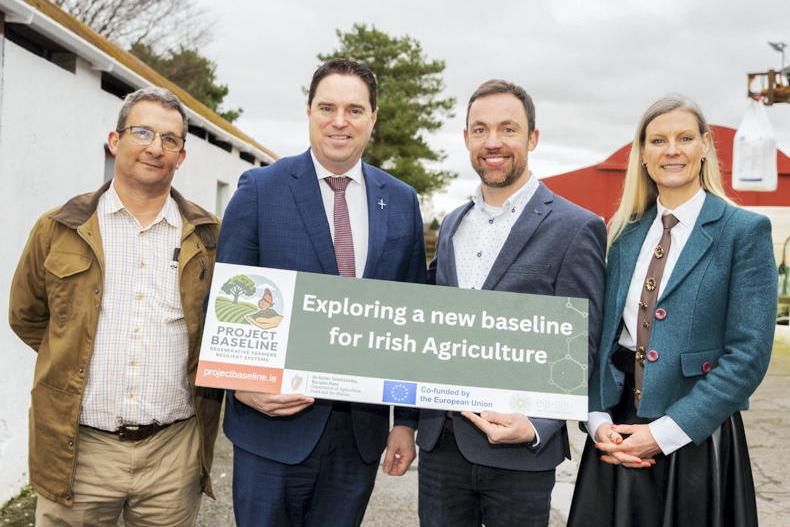
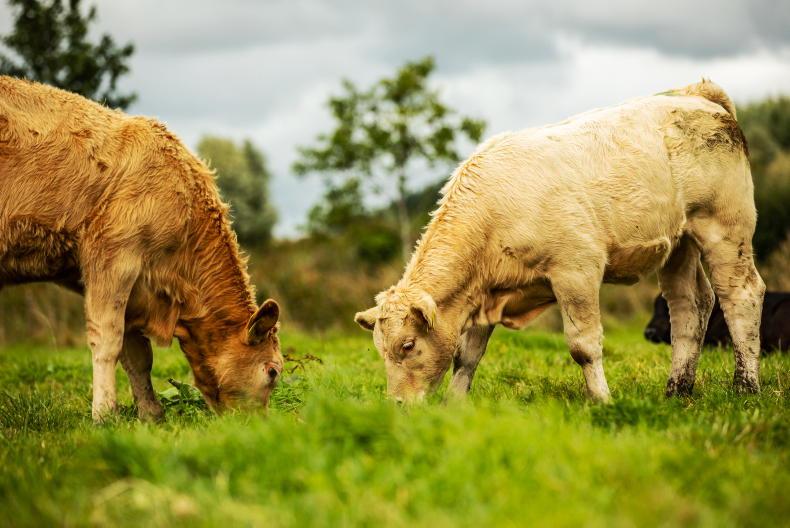
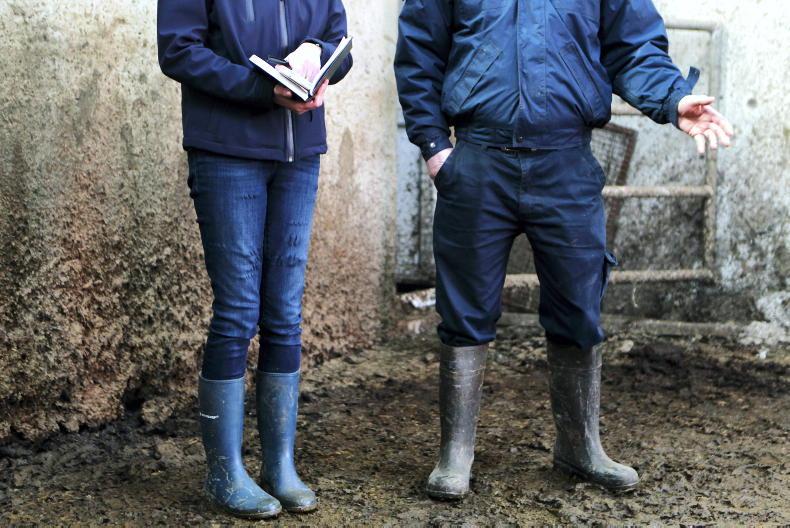

SHARING OPTIONS